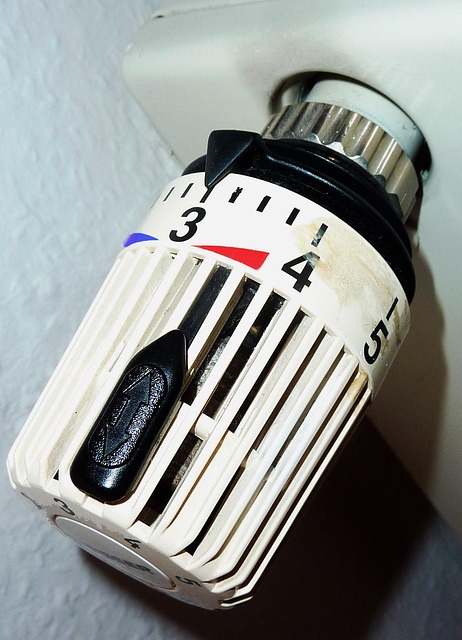What Dental Implants Will Cost You in 2025
Dental implants have revolutionized tooth replacement, offering a durable and natural-looking solution for those with missing teeth. As we approach 2025, understanding the projected costs, technological advancements, and financing options for dental implants becomes increasingly important for anyone considering this dental procedure. This comprehensive guide examines what factors will influence implant pricing in the coming years.

Dental implants have become the gold standard for replacing missing teeth, providing a permanent solution that looks, feels, and functions like natural teeth. As dental technology continues to advance, the landscape of dental implant costs and procedures is evolving. Looking ahead to 2025, patients can expect changes in pricing structures, technology, and accessibility of these life-changing dental restorations. Understanding these future trends can help you plan financially for this significant dental investment.
What Are Dental Implants and How Do They Work?
Dental implants are artificial tooth roots, typically made from biocompatible titanium, that are surgically placed into the jawbone to support replacement teeth. The implant fuses with the bone through a process called osseointegration, creating a sturdy foundation for crowns, bridges, or dentures. This three-part system consists of the implant (the titanium post), the abutment (connector piece), and the prosthetic tooth (crown).
The procedure usually involves several steps spread over 3-6 months: initial consultation and planning, implant placement surgery, healing period for osseointegration, abutment placement, and finally, attachment of the permanent crown. Modern advancements have introduced computer-guided surgery and immediate-load implants, which can significantly reduce treatment time in suitable cases.
Benefits of Dental Implants
Dental implants offer numerous advantages over traditional tooth replacement options like dentures or bridges. They prevent bone loss by stimulating the jawbone similar to natural tooth roots, maintaining facial structure and preventing the sunken appearance often associated with missing teeth. Unlike dentures, implants remain securely in place, allowing for confident speaking and eating without worries about slippage.
The durability of dental implants is remarkable, with many lasting 15-25 years or even a lifetime with proper care. This longevity often makes them more cost-effective in the long run compared to alternatives that require regular replacement. Additionally, implants don’t require altering adjacent healthy teeth (unlike traditional bridges), preserving more of your natural dental structure.
Perhaps most significantly, implants restore nearly 100% of natural chewing function, allowing patients to enjoy all foods without restriction. This nutritional benefit, combined with improved speech clarity and enhanced self-confidence, contributes to an overall better quality of life for implant recipients.
Projected Implant Costs for 2025
By 2025, dental implant costs are expected to reflect several market forces. Based on current trends and industry projections, a single tooth implant (including the implant, abutment, and crown) may range from £2,000 to £4,500 in the UK. Full-mouth restorations using implant-supported dentures or full-arch solutions could range from £12,000 to £25,000 per arch.
Several factors will influence these costs: geographical location (urban centers typically commanding higher prices), dentist expertise and specialization, implant materials and brands, diagnostic technology used, and whether additional procedures like bone grafting or sinus lifts are required. The incorporation of advanced technologies like 3D printing for surgical guides and prosthetics may initially increase costs but could eventually lead to greater efficiency and potentially lower prices.
It’s worth noting that while premium implant systems may cost more upfront, they often come with better warranties and potentially better long-term outcomes, making them more economical over time.
Cost Comparison of Dental Implant Providers in 2025
| Provider Type | Single Implant Cost (Est.) | Full Arch Solution (Est.) | Notable Features |
|---|---|---|---|
| Private Dental Clinics | £2,500-£4,500 | £15,000-£25,000 | Personalized care, premium materials, comprehensive warranties |
| Dental Hospitals | £2,000-£3,500 | £12,000-£20,000 | Teaching environments, latest technology, possibly longer wait times |
| Dental Tourism (EU) | £1,200-£2,500 | £8,000-£15,000 | Significant savings, travel costs, potential follow-up challenges |
| Corporate Dental Chains | £2,200-£3,800 | £13,000-£22,000 | Standardized pricing, multiple locations, financing options |
| Specialist Implant Centers | £2,800-£4,500 | £16,000-£25,000 | Advanced technology, specialized expertise, complex case handling |
Prices, rates, or cost estimates mentioned in this article are based on the latest available information but may change over time. Independent research is advised before making financial decisions.
Financing Options and Insurance Coverage
As we approach 2025, financing options for dental implants are becoming more diverse and accessible. Many dental practices are expected to offer in-house payment plans, allowing patients to spread costs over 12-60 months. Third-party financing companies specializing in healthcare expenses will likely continue to expand their dental implant financing programs, often with competitive interest rates for qualified applicants.
Dental insurance coverage for implants is projected to improve by 2025, with more providers recognizing implants as a standard rather than cosmetic procedure. However, coverage will still vary significantly between plans. Typical insurance might cover 50-70% of implant costs up to annual maximums of £1,000-£2,500. Health savings accounts (HSAs) and flexible spending accounts (FSAs) will remain valuable tax-advantaged options for covering out-of-pocket implant expenses.
Some dental practices may offer membership plans that provide discounts on implant procedures, while dental schools and clinical trials might provide reduced-cost implant options for those willing to participate in teaching environments or research studies.
Technological Advancements Affecting Future Costs
Technological innovations expected by 2025 will significantly impact dental implant procedures and costs. Computer-guided implant placement will become more mainstream, improving precision while potentially reducing chair time and complications. Digital scanning and 3D printing technologies will streamline the creation of surgical guides and prosthetics, possibly reducing laboratory fees and treatment timeframes.
Advancements in implant materials, including improved biocompatible surfaces that promote faster osseointegration, may command premium prices initially but could reduce overall treatment duration. Additionally, mini-implants and other less invasive options may provide more affordable alternatives for specific cases.
Artificial intelligence applications for treatment planning and robotically-assisted implant surgery represent emerging technologies that, while potentially increasing initial equipment costs for providers, may eventually translate to more predictable outcomes and possibly lower complication rates.
Dental implants continue to represent a significant investment in oral health and quality of life. While 2025 will likely bring technological improvements and possibly more insurance coverage options, patients should carefully research providers, understand all costs involved, and explore available financing options. Despite the considerable expense, the long-term benefits of dental implants—including improved oral health, functionality, aesthetics, and confidence—make them a valuable consideration for those facing tooth loss.
This article is for informational purposes only and should not be considered medical advice. Please consult a qualified healthcare professional for personalized guidance and treatment.




